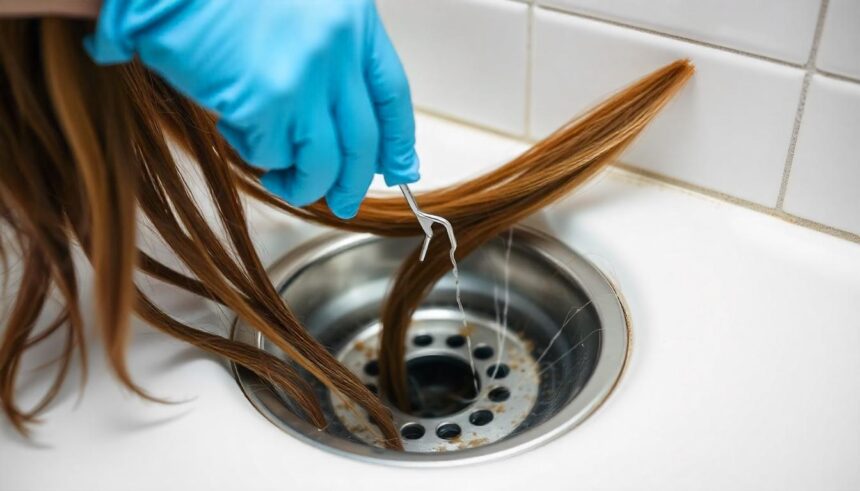Picture this: you step into the shower after a long day. The warm water cascades down, but instead of flowing away, it pools around your ankles. A clogged shower drain can turn a relaxing moment into an annoying hassle in seconds. Not only is it frustrating, but a malfunctioning drain can lead to more serious plumbing issues if left unattended. Understanding how to unclog your shower drain is essential for keeping your bathroom functional and enjoyable.
Whether it’s hair, soap scum, or other debris causing the blockage, knowing what steps to take makes all the difference. Let’s dive into some common causes of clogs and explore effective DIY solutions that will have your shower back in working order before you know it!
The importance of a functioning shower drain
A functioning shower drain is crucial for a number of reasons. First and foremost, it ensures that water flows freely away from the shower area. Standing water not only disrupts your bathing experience but can also lead to mold and mildew growth.
Proper drainage helps maintain a clean and hygienic bathroom environment. When water doesn’t drain properly, it becomes a breeding ground for bacteria and unpleasant odors.
Moreover, consistent clogs can signal underlying plumbing issues that could escalate into costly repairs if ignored. A well-maintained shower drain protects your home’s plumbing system.
Enjoying your daily routine without interruptions enhances relaxation. Imagine stepping out of a refreshing shower instead of wading through stagnant water! Keeping your shower drain in top condition makes all the difference in creating an inviting space in your home.
Common causes of a clogged shower drain
Clogged shower drains often stem from a few common culprits. Hair is the primary offender. It tends to tangle with soap scum, creating stubborn clogs that can block water flow.
Soap residue also plays a significant role. Over time, it builds up in the drain pipes and combines with hair, leading to serious blockages.
Another sneaky cause is debris like dirt or small items that accidentally wash down. This can create unexpected obstacles in your plumbing.
Hard water deposits contribute too. They accumulate over time and restrict the space within your pipes.
Grease from personal care products may find its way into your shower drain. This sticky substance attaches itself to existing debris, worsening any clogging issues you already have. Understanding these causes helps in preventing future problems before they escalate.
DIY methods to unclog a shower drain
Unclogging your shower drain doesn’t always require a plumber. There are several DIY methods you can try at home.
One popular technique is using baking soda and vinegar. Start by pouring half a cup of baking soda down the drain, followed by an equal amount of vinegar. Let it sit for about 30 minutes, then flush with hot water.
Another option is to use a plunger. Ensure there’s enough water in the shower basin to cover the suction cup. Place the plunger over the drain and pump vigorously for 20-30 seconds. Sometimes this simple action creates enough pressure to dislodge whatever is causing the blockage.
If these don’t work, consider removing the drain cover and clearing any visible debris manually. This hands-on approach often reveals hair or soap buildup that can easily be removed without special tools.
Using household items such as baking soda and vinegar or a plunger
Using household items can be an effective and eco-friendly way to tackle a clogged shower drain. Baking soda and vinegar are kitchen staples that create a natural reaction when combined. Pour half a cup of baking soda down the drain, followed by half a cup of vinegar. Let it fizz for about 15 minutes, which helps dislodge debris.
If that doesn’t do the trick, grab your trusty plunger. Ensure there’s enough water in the shower basin to cover the plunger’s rubber end. With firm pressure, plunge up and down vigorously for about 20 seconds. This creates suction that can often break free stubborn blockages.
These methods not only save you money but also avoid harsh chemicals that could damage your pipes or harm the environment. So next time you’re faced with a slow-draining shower, consider reaching for these simple solutions first!
Chemical drain cleaners: the pros and cons
Chemical drain cleaners offer a quick solution for stubborn clogs. They work by using harsh chemicals that dissolve hair, grease, and other debris. Many homeowners appreciate the instant relief they provide.
However, these products come with significant downsides. The strong chemicals can damage your plumbing if used excessively or improperly. Metal pipes are particularly vulnerable to corrosion over time.
Moreover, there’s an environmental concern. Disposing of these toxic substances can harm local ecosystems when washed down the drain.
Safety is another factor to consider. Chemical burns are a real risk if the product spills or splatters during use. Proper protective gear is essential, yet many users overlook this precaution.
While chemical solutions may seem convenient in the moment, weighing their potential risks against benefits is crucial before reaching for that bottle under your sink.
Professional methods for unclogging a shower drain, including snaking and hydro jetting
When DIY methods fall short, professional techniques can provide the relief you need. Snaking is a popular approach. A plumber inserts a flexible auger into the drain, breaking apart blockages and pulling debris out with ease.
Hydro jetting takes it up a notch. This method uses high-pressure water jets to blast away stubborn clogs and buildup in pipes. It’s thorough and effective, ensuring your drain system stays clear for longer.
Both methods are safe for your plumbing when handled by experienced professionals. They can assess the severity of the clog before deciding on the best course of action.
Investing in these services not only resolves current issues but also helps maintain your shower’s efficiency over time. If you’re facing persistent problems, enlisting expert help might be just what you need to restore flow seamlessly.
Preventative measures to avoid future clogs
Keeping your shower drain clear is all about routine maintenance. Start with a simple practice: use a hair catcher or drain screen. This will trap hair and soap scum before they can accumulate.
Make it a habit to clean the catchers regularly. Even minor build-up can lead to significant issues over time.
Rinse your drain weekly with hot water to dissolve any grease or residue that may have settled. This small act can prevent stubborn clogs from forming.
Consider using natural cleaning agents occasionally, such as baking soda and vinegar. They work wonders without harsh chemicals.
Educate everyone in your household about proper shower habits. Remind them not to wash off products like soap, shampoo, or conditioner directly into the drain without rinsing thoroughly first.
Schedule annual plumbing inspections for an added layer of prevention against future clogs!
Conclusion
A functioning shower drain is essential for a smooth and enjoyable bathing experience. When it gets clogged, it can turn a simple shower into an annoying ordeal. Understanding the common causes of clogs helps in taking preventive measures.
If you’re facing this issue, don’t worry! There are several DIY methods available that utilize household items like baking soda and vinegar or even using a plunger to tackle minor blockages effectively. These natural solutions can often provide quick relief without resorting to harsh chemicals.
Chemical drain cleaners can be tempting due to their convenience, but they come with pros and cons worth considering. While they may work quickly, they also pose risks to your plumbing and the environment.
For more stubborn clogs, professional methods such as snaking or hydro jetting offer powerful alternatives that ensure your drains remain clear for longer periods. Knowing when it’s time to call in the experts can save you from further frustrations.
Adopting preventative measures will help keep those pesky clogs at bay in the future. Regular maintenance routines make all the difference in enjoying hassle-free showers.
By keeping these strategies in mind, unclogging your shower drain becomes less daunting and more manageable—ensuring you enjoy every moment spent under warm water without interruption.







